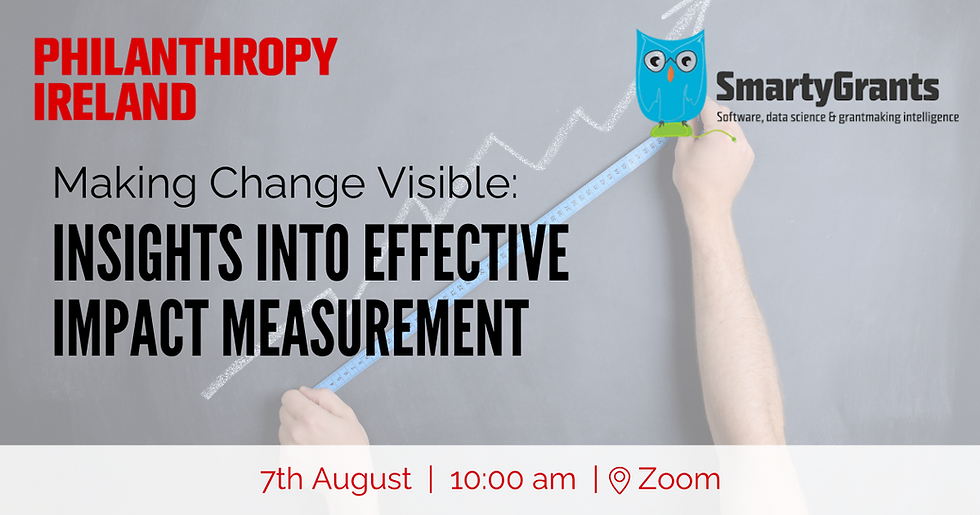Philanthropy and Planning: Crafting a Legacy That Lives Beyond You
- May 26, 2025
- 3 min read
Updated: Jul 14, 2025

By: Sean Collins, Philanthropy Ireland
Goodbody’s A Lasting Legacy guide offers a timely and thoughtful roadmap for inheritance and estate planning, urging individuals not just to pass on wealth, but to do so with purpose. Ireland stands on the brink of a monumental shift in wealth ownership – the so-called “Great Wealth Transfer.” With an ageing population and over €1.2 trillion in net household wealth, now is the moment for Irish families and Philanthropy Ireland members to think seriously about their legacy.
While there is focus on preserving wealth for children or managing tax obligations through Capital Acquisitions Tax (CAT) reliefs, one of the guide’s most inspiring chapters shines a light on philanthropy. Building a legacy isn’t only about numbers – it’s about values, impact, and the long-term good one can do for society.
For those seeking to give, strategically and with clear purpose, there are several impactful avenues available. Donating directly to registered charities or approved bodies is a straightforward route, offering not just social benefit but also potential tax advantages. For those seeking a more structured approach, Donor Advised Funds (DAFs) present a flexible and increasingly popular model. These allow donors to contribute a lump sum, benefit from immediate tax relief, and advise on how the funds are distributed over time – fostering an enduring relationship with charitable causes.
Even more enduring is the establishment of a charitable foundation or trust. While these require careful planning and legal guidance, they offer the ultimate vehicle for sustained impact. Through tailored missions and grant-making structures, families can embed philanthropic values across generations, encouraging younger heirs to become stewards of social good.
The guide also delves into impact investing – a blend of financial planning and values-based decision-making. Here, investment portfolios are aligned with ethical, environmental, or social principles. It’s a way of ensuring your capital continues to reflect your beliefs, even posthumously.
Importantly, Goodbody encourages families to begin these conversations early. Family governance tools like Family Charters can help articulate shared values and long-term visions, offering clarity not only around financial decisions but also around social responsibility. These charters often become living documents, updated as families grow and evolve.
Another key message from the guide is the critical importance of writing a will and establishing an Enduring Power of Attorney. These tools ensure that both assets and intentions are clearly outlined, avoiding unnecessary disputes and allowing for the seamless execution of philanthropic goals.
Ultimately, A Lasting Legacy is more than a tax guide – it’s a call to action. It challenges wealth creators not just to preserve what they’ve built, but to consider how their resources can do good in the world, long after they’re gone. For those looking to make a meaningful impact, the time to plan is now – because legacies that include philanthropy last longer, reach further, and inspire future generations.
There is an opportunity now to open conversations. Professional advisers supporting clients in wealth planning are well positioned to offer insights and signpost options for the inclusion of philanthropy in wealth plans. This is advice that clients will value.
With the publication of this report comes a call to action for those in the wealth planning space, at whatever juncture – trigger conversations on philanthropy; provide those who have capacity to give with additional insights for them to consider in their wealth planning and open doors for those who want to go on a philanthropy journey.
There are many supports and resources to help such conversations, including here at Philanthropy Ireland. We would welcome an opportunity to provide such support.





Comments